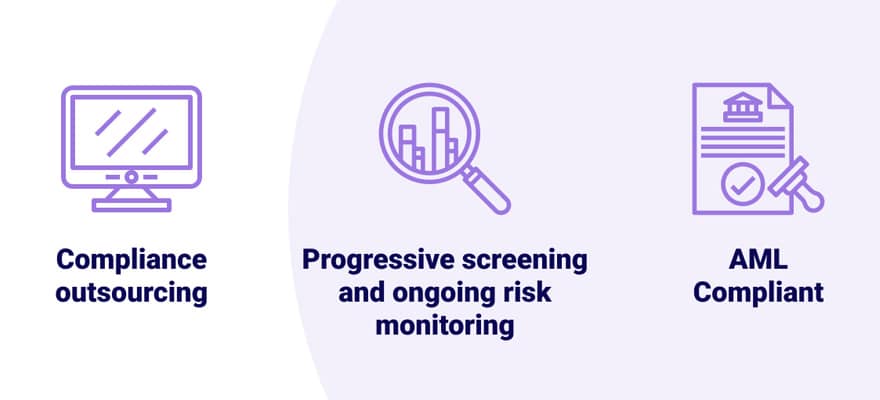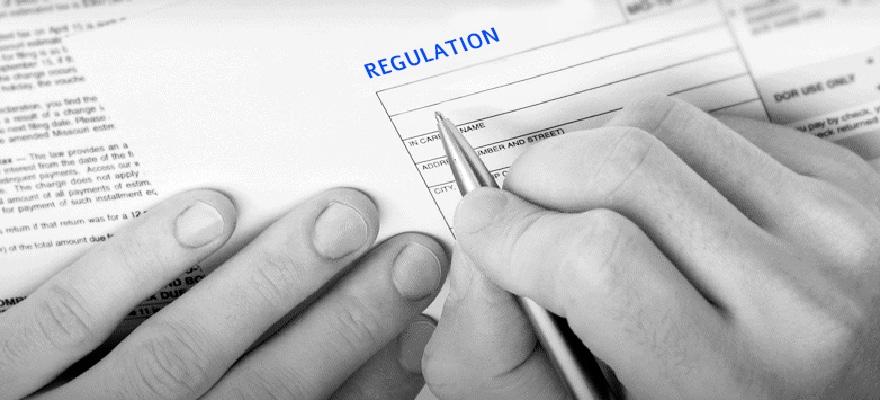Global authorities issued $13.74 billion in Anti-Money Laundering (AML) ) fines according to Finbold’s Bank Fines 2020 report. This shows that financial organizations are struggling to follow AML regulations. One of the reasons why is because there are many AML directives, locally and globally. This has resulted in the emergence of regtech companies that offer different solutions aimed to help the financial industry and other regulated industries comply with existing directives and laws. This article will give an overview of these companies and the problems they are working to solve.
1. There are solutions and companies that provide monitoring of suspicious transactions. These are solutions that monitor:
- Large money transactions
- Suspicious money transactions
- insider dealing or market manipulation
Or a program that monitors all the regulatory papers, upcoming laws and enforcement actions.
These are usually developed with AI and machine-learning algorithms, which deliver great results in both scanning and monitoring.
Monitoring exists to make sure that financial organizations are compliant with every AML Regulation and operate as they should. This is important for banks, cryptocurrency exchanges and other services because a violation of the existing laws and support of money laundering (even unintendedly) can lead to huge penalties or even a prohibition to operate.
2. The second type of regtech firms are those that provide client identification and verification. According to AML regulations, many services such as financial services need to verify their clients. There are companies that gather all the necessary information about the client (ID documents, proof of address, etc) and they can determine whenever identity fraud is happening (forged or stolen documents provided, etc). They also can execute the Client’s Due Diligence when needed (a deeper and more scrupulous check).
Companies need to verify the client's identity to know who they are dealing with and to comply with the law. It does eliminate the risk of dealing with people with fake identities and criminals, and it is used for age

Dmitri Laush, CEO of GetID,
verification when it comes to age-restricted products, remote access to services like rental cars, telemedicine services, etc.
Automated identity verification speeds up the onboarding process and makes the user experience better.
3. There are companies that take the next step after the identity of the client is verified. When it comes to high-risk clients transacting large sums of money, there are companies checking the clients (including legal entities) in sanctions lists /PEPs lists, and executing adverse media. Sanctions lists include individuals, companies, and whole countries which once committed illegal activities violating international laws.
The Politically Exposed Person (PEP) list includes political leaders who committed crimes, performed bribery or been involved in corruption. PEP lists might also include political party officials and senior executives in the companies. In the list might be close friends and family members too.
Adverse media is a search in the media for any negative news about the person or company.
All of these checks help to ensure that the person or company do not use money transfers to launder money, finance terrorism, etc. Also, many companies refuse to take PEPs as clients because of the future risks and illicit activities they might perform.
KYC and identity verification services also use the types of companies that can check sanctions/PEP lists or do adverse media. Businesses that have KYC solutions in-house can buy access to those lists without even using this type of regtech company.
4. Other types of regtech companies help companies with reporting to AML authorities. Every financial service is obliged to make reports and submit their data to different regulatory bodies. For example, Suade helps banks submit required regulatory reports without disruption to their architecture.
5. GDPR in the EU and many other data protection regulations made companies that gather sensitive personal data look for solutions to keep it secure and safe. Data protection regtech companies focus on data privacy and safety. It helps to keep the aggregated client’s data safe and comply with the laws.
6. Some regtech companies focus on the analysis of the fraud rates, criminal activities, money spent on penalties, and other indicators in the industry. Different types of companies just help financial services and other companies, which fall under AML regulation to analyze the personal data they store.
Different types of statistics and analysis are needed for the authorities so they can understand the weaker points of a company’s compliance strategy. This might also be needed for financial companies, like banks, to improve their performance and not violate any directives.
Javelin Strategy & Research and Fenergo are only a few of the companies that provide these types of analyses.
7. And, of course, there are consulting and training companies. The first type simply consults in-house compliance departments on AML regulations, user sign-ups, etc. Another type is making regtech and compliance courses, master classes, and training for certain corporations and employees.
In my opinion, the biggest potential market nowadays is online identity verification and reporting companies. COVID made a lot of services and institutions switch online, hence many of them needed to start performing online paperless identity verification of their customers. Digital ID’s framework is now discussed in many countries and states (European Commission discussing its implementation as well as the state of Florida in the US). Digital ID will only be rising the demand for online identity verification solutions.
In contrast, correct reporting to AML authorities has always been on the table for many companies, so that is, in my mind, another sector of the regtech industry that will soon thrive.
According to Markets and Markets research, the regtech market size is expected to grow from USD 6.3 billion in 2020 to USD 16.0 billion by 2025, so I believe that there are many opportunities for investors and players in this market. Of course, the competition will rise, so only the most advanced, user-friendly, and professional solutions will continue to exist.
Dmitri Laush, CEO GetID, part of Checkin.com Group.



















